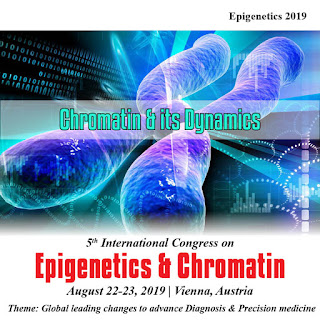Synergistic developments in advanced
fluorescent imaging & labeling techniques enable direct visualization of
the chromatin structure & dynamics at the nanoscale level & in live
cells. Super-resolution imaging encompasses a class of constantly evolving
techniques that break the diffraction limit of fluorescence microscopy.
Structured illumination microscopy provides a twofold resolution improvement
& can readily achieve live multicolor imaging using conventional fluorophores.
Single-molecule localization microscopy increases the spatial resolution by
approximately 10-fold at the expense of slower acquisition speed. Stimulatedemission-depletion microscopy generates a roughly fivefold resolution
improvement with an imaging speed proportional to the scanning area. In
parallel, advanced labeling strategies have been developed to "light
up" global & sequence-specific DNA regions. DNA binding dyes have been
exploited to achieve high labeling densities in single-molecule localization microscopy
& enhance contrast in correlated light and electron microscopy.
New-generation Oligopaint utilizes bioinformatics analyses to optimize the
design of fluorescence in situ hybridization probes. Through sequential &
combinatorial labeling, direct characterization of the DNA domain volume &
length as well as the spatial organization of distinct topologically associated
domains has been reported. In live cells, locus-specific labeling has been
achieved by either inserting artificial loci next to the gene of interest, such
as the repressor-operator array systems, or utilizing genome editing tools,
including zinc finer proteins, transcription activator-like effectors, and the
clustered regularly interspaced short palindromic repeats systems. Combined with
single-molecule tracking, these labeling techniques enable direct visualization
of intra- and inter-chromatin interactions.
To know more: https://epigenetics.expertconferences.org/events-list/chromatin-its-dynamics

No comments:
Post a Comment